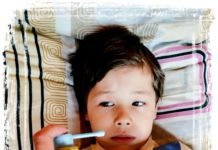| Key Functions of Testosterone | Impact on Men’s Health |
|---|---|
| Sexual function and libido | Ensures healthy sexual desire and performance |
| Muscle development and strength | Supports the growth and maintenance of lean muscle mass |
| Bone health and density | Promotes strong, dense bones and reduces the risk of osteoporosis |
| Energy levels and mood regulation | Boosts vitality, focus, and emotional well-being |
By understanding the vital functions of testosterone, men can better recognize the importance of maintaining healthy male hormones and take proactive steps to support their overall testosterone functions.
Men’s Hormone Cycle and Aging
As men age, they experience a gradual decline in their testosterone levels, a condition commonly known as andropause or male menopause. This natural hormonal transition can have significant implications for their physical and emotional well-being. Understanding the intricacies of the aging men’s hormone cycle is crucial in navigating this phase of life with grace and resilience.
Andropause: The Male Menopause
Andropause, the male counterpart to female menopause, is a hormonal change that occurs in aging men. Unlike the abrupt hormonal shift experienced by women, the decline in testosterone levels in men is more gradual, often beginning as early as their 40s and continuing throughout their later years.
The hormonal changes associated with andropause can lead to a range of symptoms, including:
- Decreased libido and sexual function
- Reduced muscle mass and strength
- Increased body fat
- Fatigue and decreased energy levels
- Mood changes, such as irritability and depression
- Difficulty concentrating and memory lapses
Recognizing and addressing these aging men hormone-related changes is crucial for maintaining overall health and well-being during this transitional phase of life.
“Andropause is a natural physiological process that occurs in men, and it is important to understand and manage the associated hormonal changes to ensure a smooth transition into the later stages of life.”
By understanding the dynamics of the male menopause and the hormonal changes that accompany it, men can take proactive steps to mitigate the impact on their physical and mental health. Seeking medical guidance and exploring lifestyle interventions can help aging men navigate this phase of life with greater ease and maintain their overall well-being.
Symptoms of Hormonal Imbalance
Maintaining a healthy hormonal balance is crucial for men’s overall well-being, but hormonal imbalances can manifest in various ways. From changes in sexual function and libido to mood swings, fatigue, and muscle loss, the symptoms of hormonal imbalance can significantly impact a man’s quality of life. Understanding these common signs is the first step towards identifying and addressing potential issues with the men’s hormone cycle.
One of the most noticeable symptoms of hormonal imbalance is a shift in sexual function and libido. Low testosterone, for instance, can lead to a decreased sex drive, difficulty achieving or maintaining an erection, and reduced sperm production. Conversely, high testosterone may cause an increased sex drive, but can also contribute to other issues such as aggression, mood swings, and even infertility.
Hormonal fluctuations can also affect a man’s energy levels and mood. Hormonal imbalance can result in persistent fatigue, difficulty concentrating, and changes in mood, ranging from irritability and depression to anxiety and mood swings. These psychological and physiological effects can significantly impact a man’s overall quality of life and ability to perform daily tasks.
























































